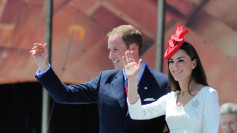Iran and the United States began high-stakes nuclear talks on Saturday in Oman, as President Donald Trump renewed threats of military action should negotiations fail, while Tehran warned of the consequences of any strike.
Iranian Foreign Ministry spokesperson Esmail Baghaei said on X that indirect talks had begun with the mediation of Omani Foreign Minister Badr al-Busaidi. According to Iranian state media, both parties are seated in separate rooms and are exchanging positions through the Omani diplomat. The U.S. side has not formally confirmed that the negotiations are underway.
Iran is aiming for an "initial understanding" that could pave the way for a full negotiation process, Iranian Foreign Minister Abbas Araghchi told reporters upon arrival in Muscat. "If there is sufficient will on both sides, we will decide on a timetable. But it is still too early to talk about that," he said, according to an audio clip published by the Islamic Republic News Agency (IRNA).
President Trump, speaking aboard Air Force One on Friday, reiterated his opposition to a nuclear-armed Iran. "I want them not to have a nuclear weapon. I want Iran to be a wonderful, great, happy country, but they can't have a nuclear weapon," he said.
The talks come as Iran faces mounting internal and external pressure. Over the past 18 months, Israeli military operations have eroded the capabilities of Iranian proxy forces, the Assad regime has fallen in Syria, and a series of domestic attacks have weakened Tehran's posture. Trump has set a two-month deadline for Tehran to accept a deal or face consequences. "If it requires military, we're going to have military," Trump said Wednesday. "Israel will obviously be very much involved in that. They'll be the leader of that."
Iran, however, has pushed back strongly. According to semi-official Tasnim News Agency, Iranian officials listed several red lines for the talks, including any reference to its ballistic missile program or defense industry, and objected to what they called "threatening language" and "excessive demands."
U.S. envoy Steve Witkoff traveled to Muscat following a Friday meeting with Russian President Vladimir Putin in St. Petersburg. Though Trump has publicly described the Oman discussions as direct, Iran insists they remain indirect and focused solely on nuclear issues.
In remarks to The Wall Street Journal before departing, Witkoff said, "I think our position begins with dismantlement of your program. That is our position today." He added, "Where our red line will be, there can't be weaponization of your nuclear capability."
Iranian enrichment levels have advanced far beyond limits set by the 2015 Joint Comprehensive Plan of Action (JCPOA), which Trump abandoned in 2018. Analysts warn Tehran's current stockpile includes uranium enriched up to 60% purity-a short technical step away from weapons-grade.
While sanctions relief is expected to be offered as part of a potential deal, the scope of what Iran is willing to concede remains unclear. Observers expect Tehran to resist any demand to fully dismantle its nuclear infrastructure.
Tehran has also cited the fate of Libya's Muammar Gaddafi as a cautionary tale, suggesting it would not trust U.S. assurances. Gaddafi gave up his nuclear program in the early 2000s and was killed during the country's 2011 uprising.
Back in Washington, some officials have downplayed military threats. "This is not me issuing a threat. It's the president who has that authority," Witkoff told Tucker Carlson last month. State Department spokesperson Tammy Bruce echoed this stance Friday, emphasizing that "the very specific thing that needs to be accomplished, which would make the world a much safer place, is to make sure that Iran never gets a nuclear weapon."
Despite internal divisions within the administration over the pace and tone of diplomacy, the Biden and Trump teams alike have been warned by U.S. intelligence that Israel could act unilaterally against Iran's nuclear sites. Israeli Prime Minister Benjamin Netanyahu, caught off guard by Trump's announcement of the Oman talks, has vowed to continue pursuing his government's strategy to prevent a nuclear Iran.






